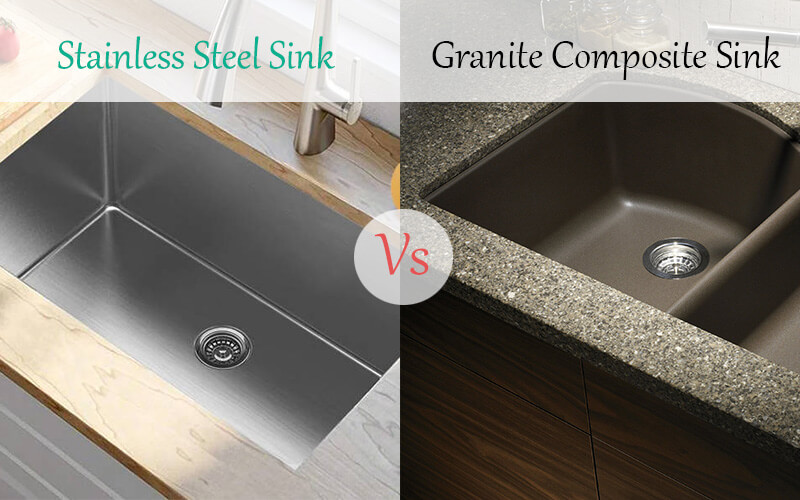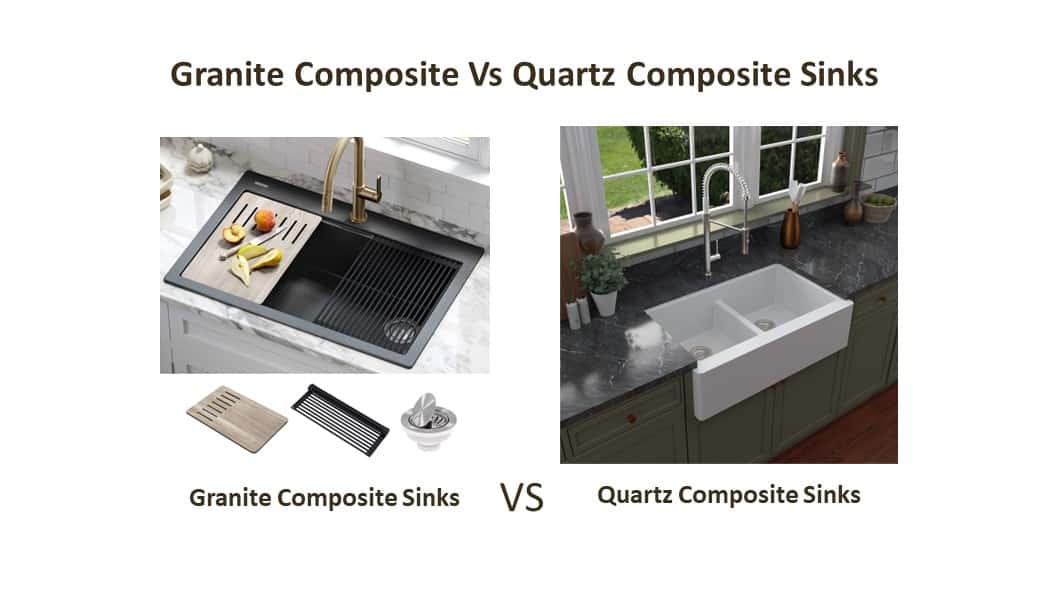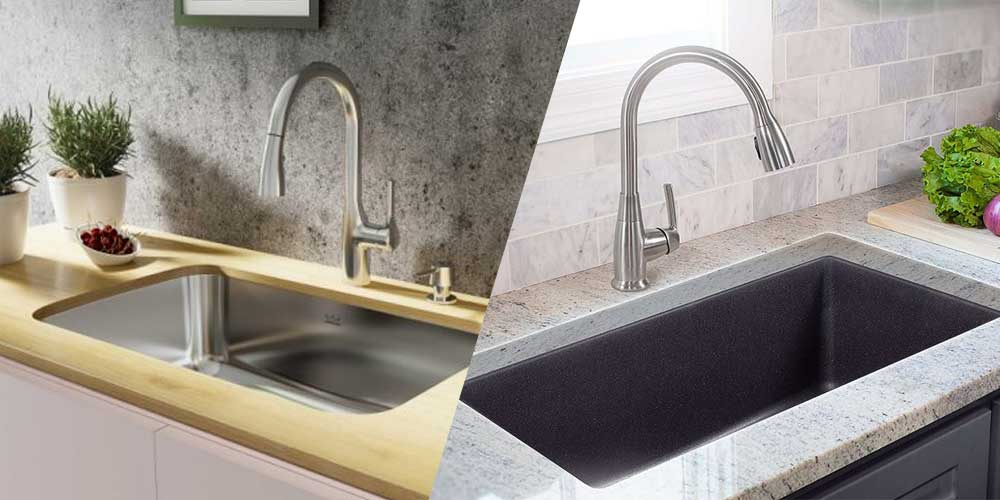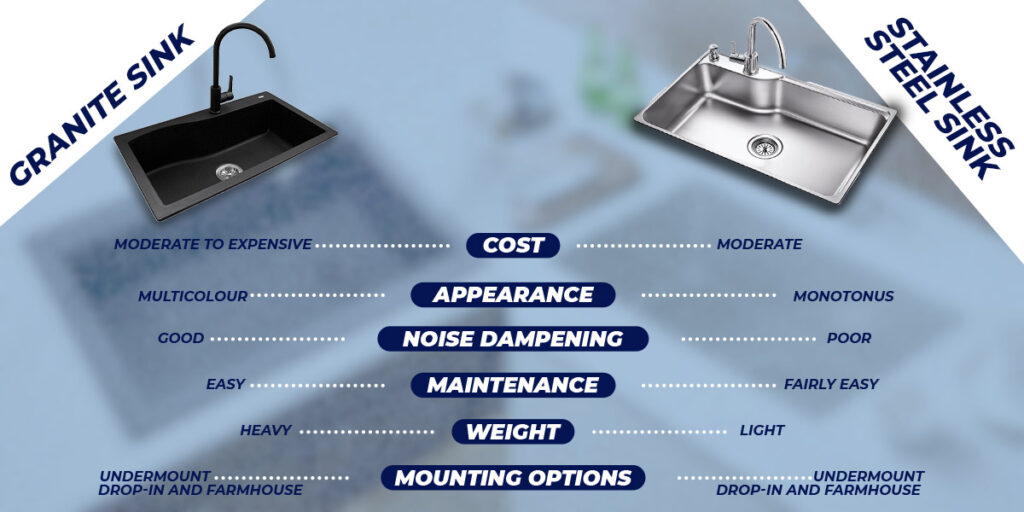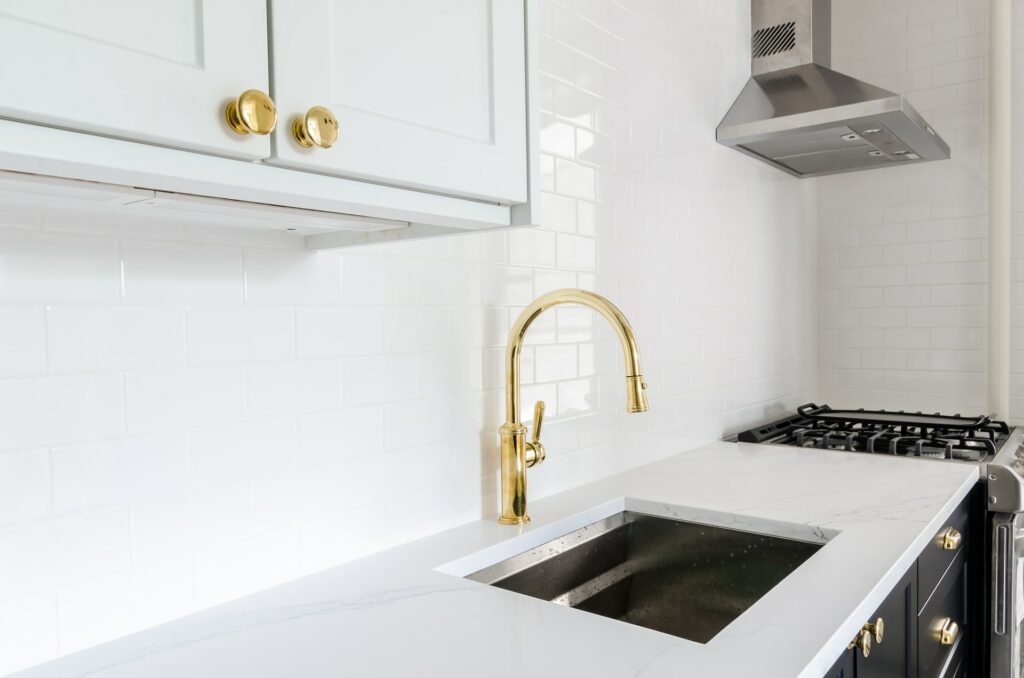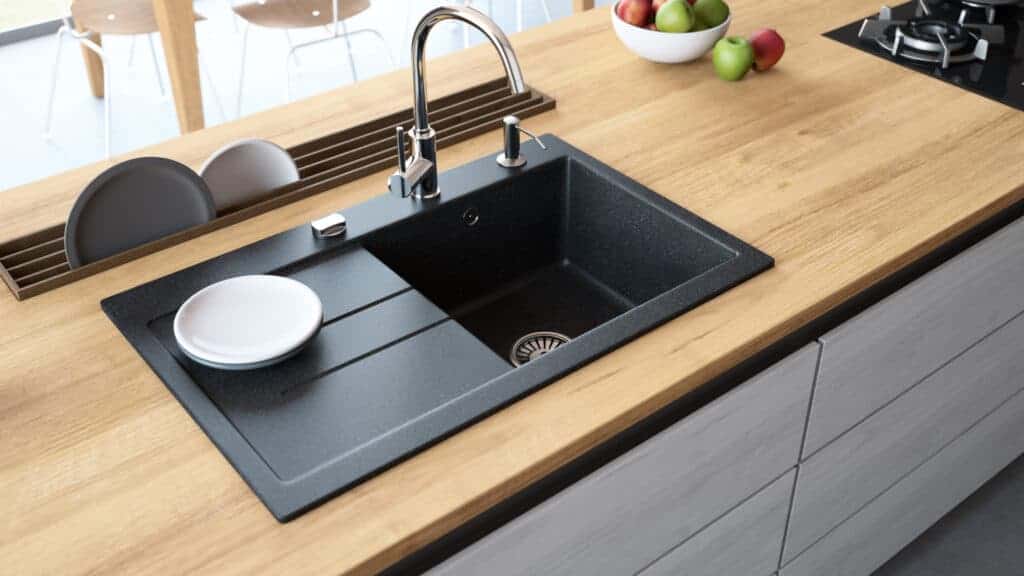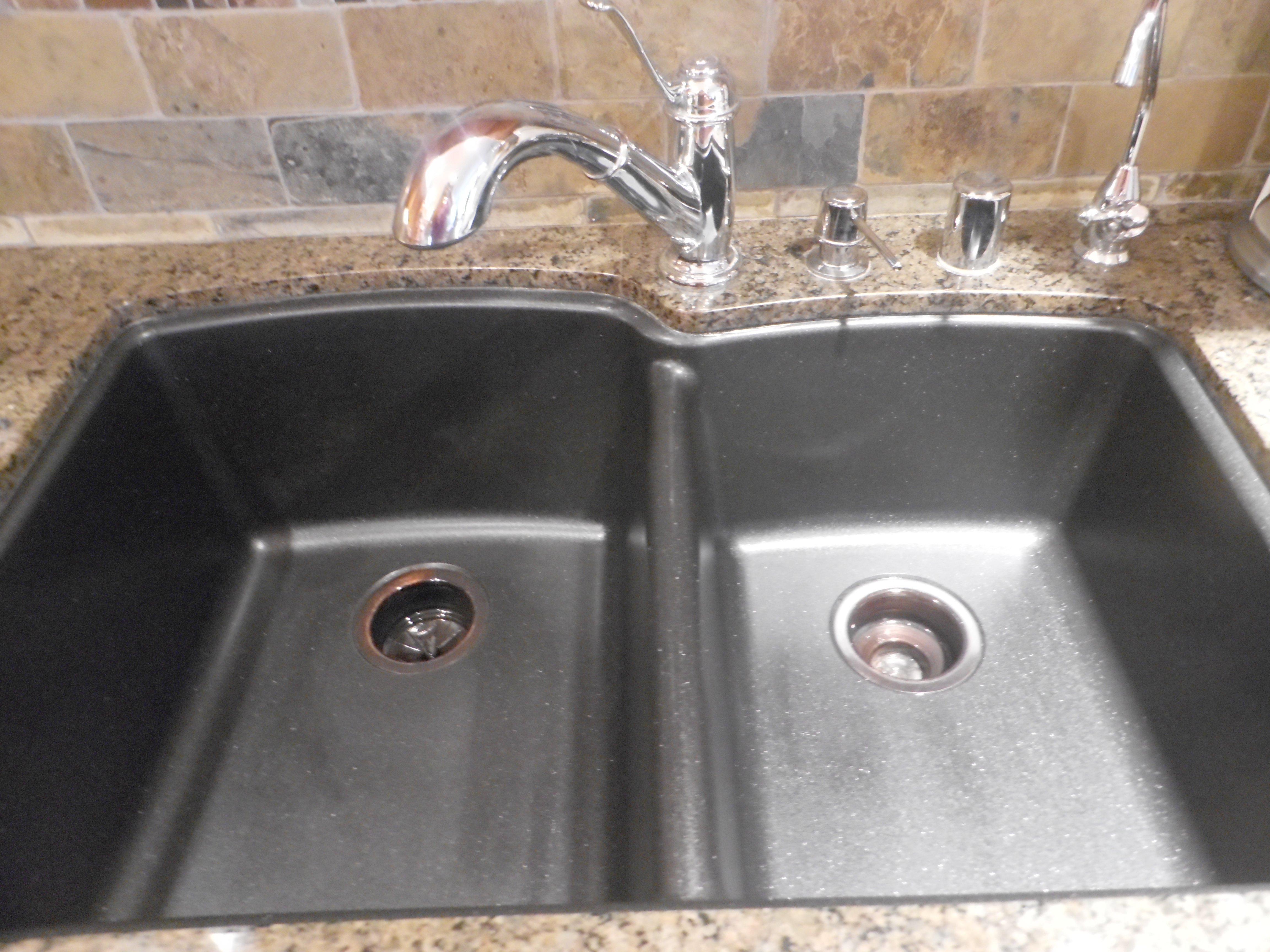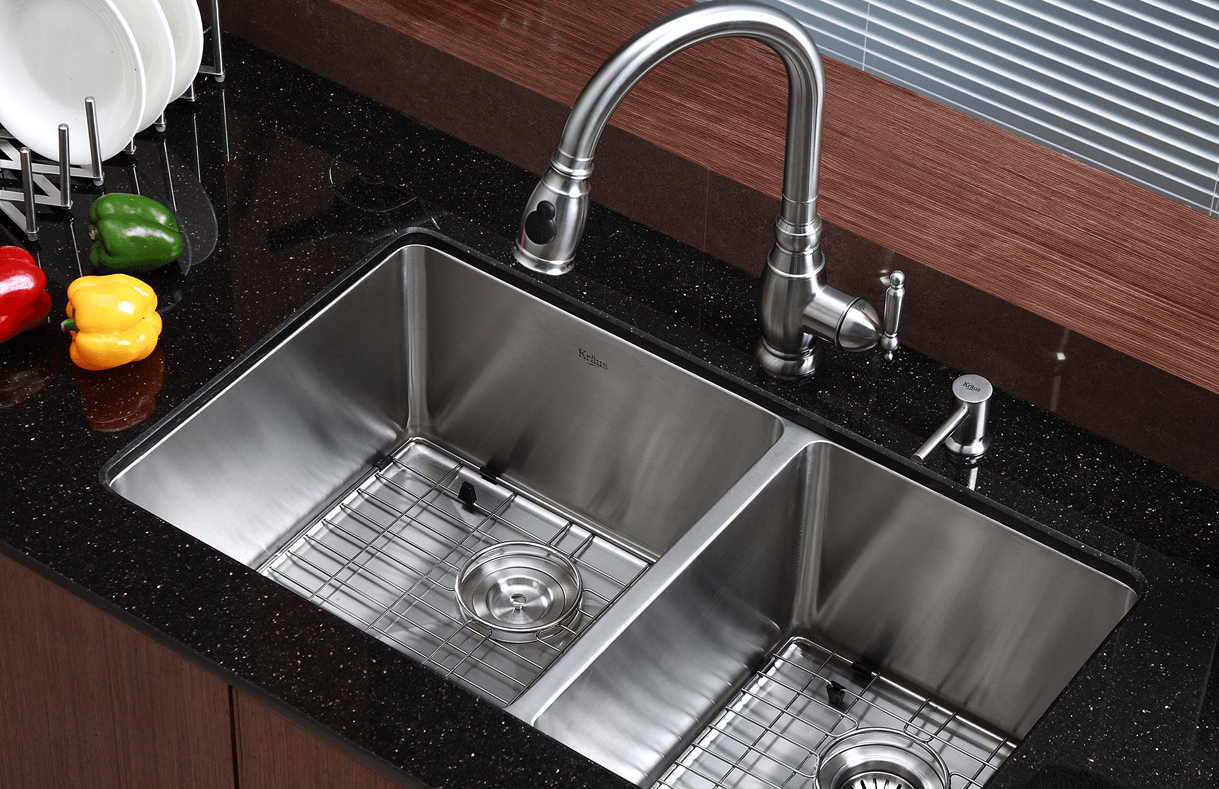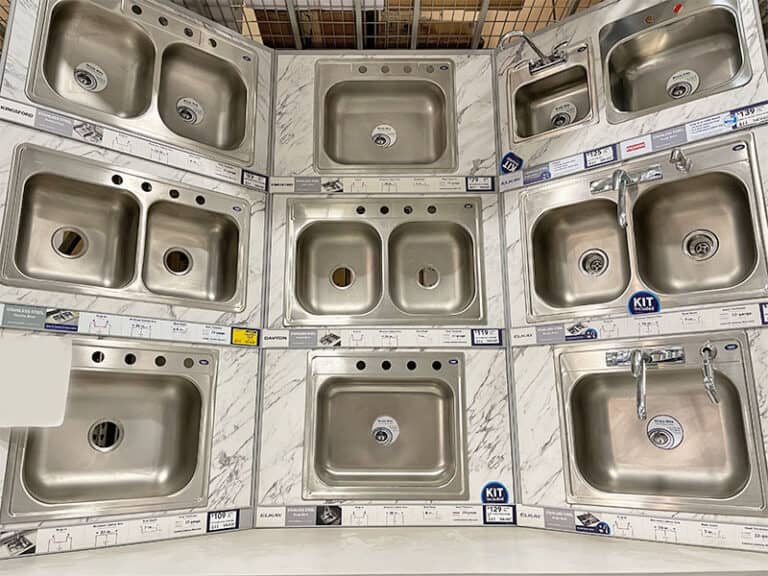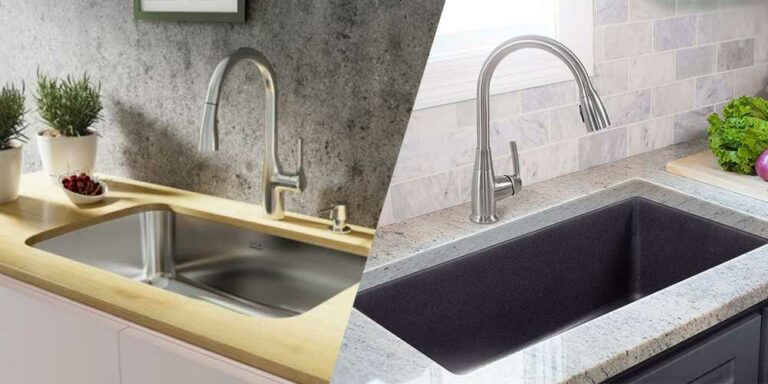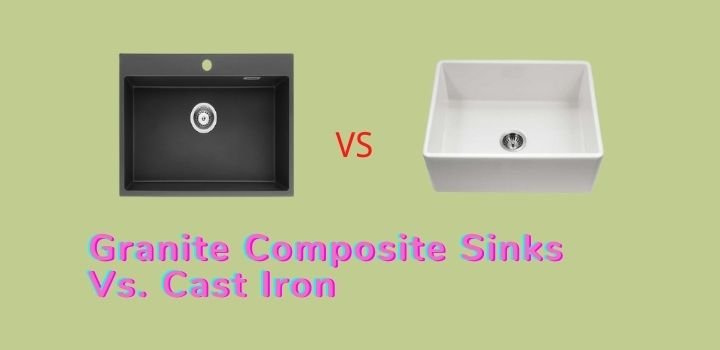When it comes to choosing a kitchen sink, durability is a major factor to consider. After all, your sink is one of the most frequently used items in your kitchen, so it needs to be able to withstand daily wear and tear. Both granite composite and stainless steel kitchen sinks are known for their durability, but which one comes out on top? Granite composite kitchen sinks are made from a mixture of granite stone dust and acrylic resin. This combination creates a highly durable and strong material that can resist scratches, chips, and stains. It is also heat-resistant, making it a popular choice for busy kitchens. Stainless steel kitchen sinks, on the other hand, are made from a single sheet of metal, usually 18-20 gauge stainless steel. This material is known for its strength and ability to resist dents and scratches. However, it is not as strong as granite composite sinks and can be prone to water spots and scratches. Overall, when it comes to durability, granite composite sinks have the upper hand. They are less likely to show signs of wear and tear over time and can withstand heavy use without any issues.1. Durability Comparison: Granite Composite vs Stainless Steel Kitchen Sinks
Before making a decision on which type of kitchen sink to install in your home, it's important to consider the pros and cons of each. Granite composite sinks have many advantages, including their durability, heat resistance, and resistance to stains and scratches. They also come in a variety of colors and styles, making it easy to find one that matches your kitchen decor. However, they can be more expensive than stainless steel sinks and may require special cleaning products to maintain their appearance. Stainless steel sinks are a popular choice due to their affordability, easy maintenance, and versatility. They come in a range of styles and sizes, making it easy to find one that fits your kitchen perfectly. However, they can be noisy when water hits the metal surface and are prone to water spots and scratches. Ultimately, the choice between granite composite and stainless steel sinks comes down to personal preference and budget. While granite composite sinks may have more benefits, stainless steel sinks are a more budget-friendly option.2. Pros and Cons of Granite Composite and Stainless Steel Kitchen Sinks
Maintenance and cleaning are important factors to consider when choosing a kitchen sink. After all, you want a sink that is easy to clean and maintain to keep your kitchen looking its best. Granite composite sinks are relatively easy to maintain, as they are resistant to stains and scratches. However, they do require special cleaning products to keep them looking their best. Abrasive cleaners or scrubbing pads should be avoided, as they can damage the surface of the sink. Stainless steel sinks are also easy to maintain, as they can be cleaned with just soap and water. However, they are prone to water spots, so they may require regular wiping to keep them looking shiny. They can also be easily scratched, so abrasive cleaners and scrubbing pads should be avoided. In terms of maintenance and cleaning, both types of sinks have their own unique requirements. Granite composite sinks may require special cleaning products, but they are more resistant to stains and scratches. Stainless steel sinks are more low-maintenance, but they are prone to water spots and scratches.3. Maintenance and Cleaning: Granite Composite vs Stainless Steel Kitchen Sinks
Cost is often a major factor when making any home improvement decision, and the same goes for kitchen sinks. Granite composite sinks are typically more expensive than stainless steel sinks, with prices ranging from $400 to $1,000, depending on the size and style. Stainless steel sinks, on the other hand, are much more affordable, with prices ranging from $100 to $500. The cost can vary depending on the gauge of the stainless steel and whether it is a top-mount or undermount sink. Ultimately, the cost of a kitchen sink will depend on your budget and which features are most important to you. If durability and heat resistance are top priorities, then a granite composite sink may be worth the extra cost. However, if budget is a concern, a stainless steel sink may be the better option.4. Cost Comparison: Granite Composite vs Stainless Steel Kitchen Sinks
Design and style are important considerations when choosing a kitchen sink. After all, you want your sink to not only be functional but also complement the overall look of your kitchen. Granite composite sinks are available in a wide range of colors and styles, making it easy to find one that matches your kitchen decor. They can also be undermounted for a seamless look or top-mounted for a more traditional style. However, the color options may be limited, and the sink may not match other appliances in your kitchen. Stainless steel sinks have a classic and versatile design that can complement any kitchen style. They are available in a variety of sizes and can be either top-mounted or undermounted. However, they may not be as visually striking as granite composite sinks and may not offer as many color options. In terms of design and style, both types of sinks have their own unique features. Granite composite sinks offer a wider range of color options, while stainless steel sinks have a classic and versatile design.5. Design and Style: Granite Composite vs Stainless Steel Kitchen Sinks
Heat resistance is an important factor to consider when choosing a kitchen sink, as you want a sink that can withstand hot pots and pans without getting damaged. Granite composite sinks are highly heat-resistant, making them a popular choice for busy kitchens. They can withstand temperatures up to 535 degrees Fahrenheit without being damaged or discolored. This makes them a great option for homes with busy cooks or families. Stainless steel sinks are also heat-resistant, but not to the same extent as granite composite sinks. They can withstand temperatures up to 300 degrees Fahrenheit without getting damaged, but anything hotter may cause discoloration or warping. This may not be a major issue for most households, but it is something to consider if you do a lot of cooking. In terms of heat resistance, granite composite sinks are the clear winner. They can withstand much higher temperatures without being damaged, making them a more practical choice for busy kitchens.6. Heat Resistance: Granite Composite vs Stainless Steel Kitchen Sinks
No one wants a noisy kitchen sink, especially if you have an open-concept kitchen where noise can easily travel. This is where noise reduction comes into play. Granite composite sinks are known for their noise reduction abilities, as the stone material absorbs sound and reduces the loudness of running water or clanging dishes. This can make for a more peaceful and quiet kitchen environment. Stainless steel sinks are not as good at noise reduction, as the metal material can amplify sound. However, some stainless steel sinks come with sound-absorbing pads or coatings that can help reduce noise. If noise reduction is a top priority for you, then a granite composite sink may be the better option. However, if you don't mind a bit of noise, then a stainless steel sink may still be a suitable choice.7. Noise Reduction: Granite Composite vs Stainless Steel Kitchen Sinks
Stains are a common concern when it comes to kitchen sinks, as no one wants a sink that looks dirty and worn out. So, which type of sink is more resistant to stains? Granite composite sinks are highly resistant to stains, thanks to their non-porous surface. This means that any spills or stains can be easily wiped away without leaving a mark. However, if the sink is not properly maintained, it can develop hard water stains or discoloration over time. Stainless steel sinks are also resistant to stains, but not to the same extent as granite composite sinks. They can develop water spots and stains if not regularly wiped dry, but these can be easily removed with a stainless steel cleaner. When it comes to stain resistance, both types of sinks have their own advantages. Granite composite sinks are more resistant to stains, but stainless steel sinks are easy to clean and maintain.8. Stain Resistance: Granite Composite vs Stainless Steel Kitchen Sinks
The installation process for kitchen sinks can vary depending on the type of sink and your kitchen setup. So, which type of sink is easier to install? Granite composite sinks can be more difficult to install, as they are heavier and require additional support due to their weight. They also need to be sealed properly to prevent leaks and maintain their appearance. Stainless steel sinks are easier to install, as they are lighter and can be easily mounted using clips and screws. However, the installation process may still require the help of a professional to ensure proper fitting and sealing. In terms of installation, stainless steel sinks have the upper hand. They are lighter and easier to mount, making them a more convenient option for DIY homeowners.9. Installation Comparison: Granite Composite vs Stainless Steel Kitchen Sinks
In today's world, many people are looking for ways to make their homes more eco-friendly. So, which type of kitchen sink is the more environmentally friendly option? Granite composite sinks are made from a combination of natural stone and acrylic resin, making them a more environmentally friendly choice. They are also recyclable, so if you ever decide to replace your sink, it can be repurposed rather than ending up in a landfill. Stainless steel sinks are not as eco-friendly, as they are made from a non-renewable resource and can contribute to landfill waste if not properly disposed of. However, many stainless steel sinks are made from recycled materials, making them a more sustainable option. When it comes to eco-friendliness, granite composite sinks may have a slight advantage. However, both types of sinks have eco-friendly options available, so it ultimately comes down to personal preference. Overall, both granite composite and stainless steel kitchen sinks have their own unique advantages and disadvantages. It ultimately comes down to your personal needs and preferences when choosing the right sink for your kitchen. Whether you prioritize durability, style, or eco-friendliness, both types of sinks have something to offer. Consider each aspect carefully before making your decision, and you'll end up with a kitchen sink that meets all your needs and fits your budget.10. Eco-Friendliness: Granite Composite vs Stainless Steel Kitchen Sinks
The Benefits of Choosing a Granite Composite Kitchen Sink Over Stainless Steel
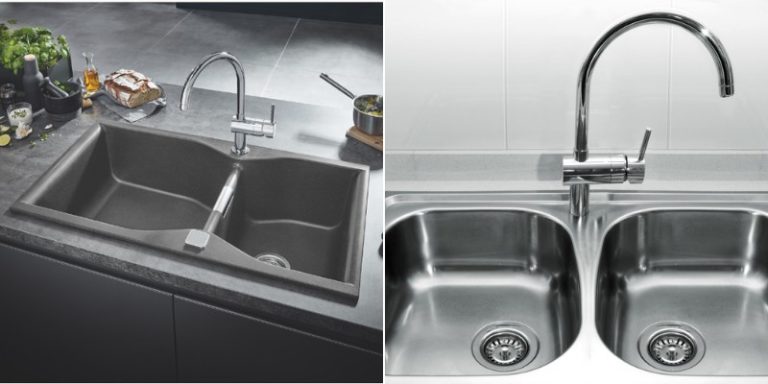
Durability and Longevity
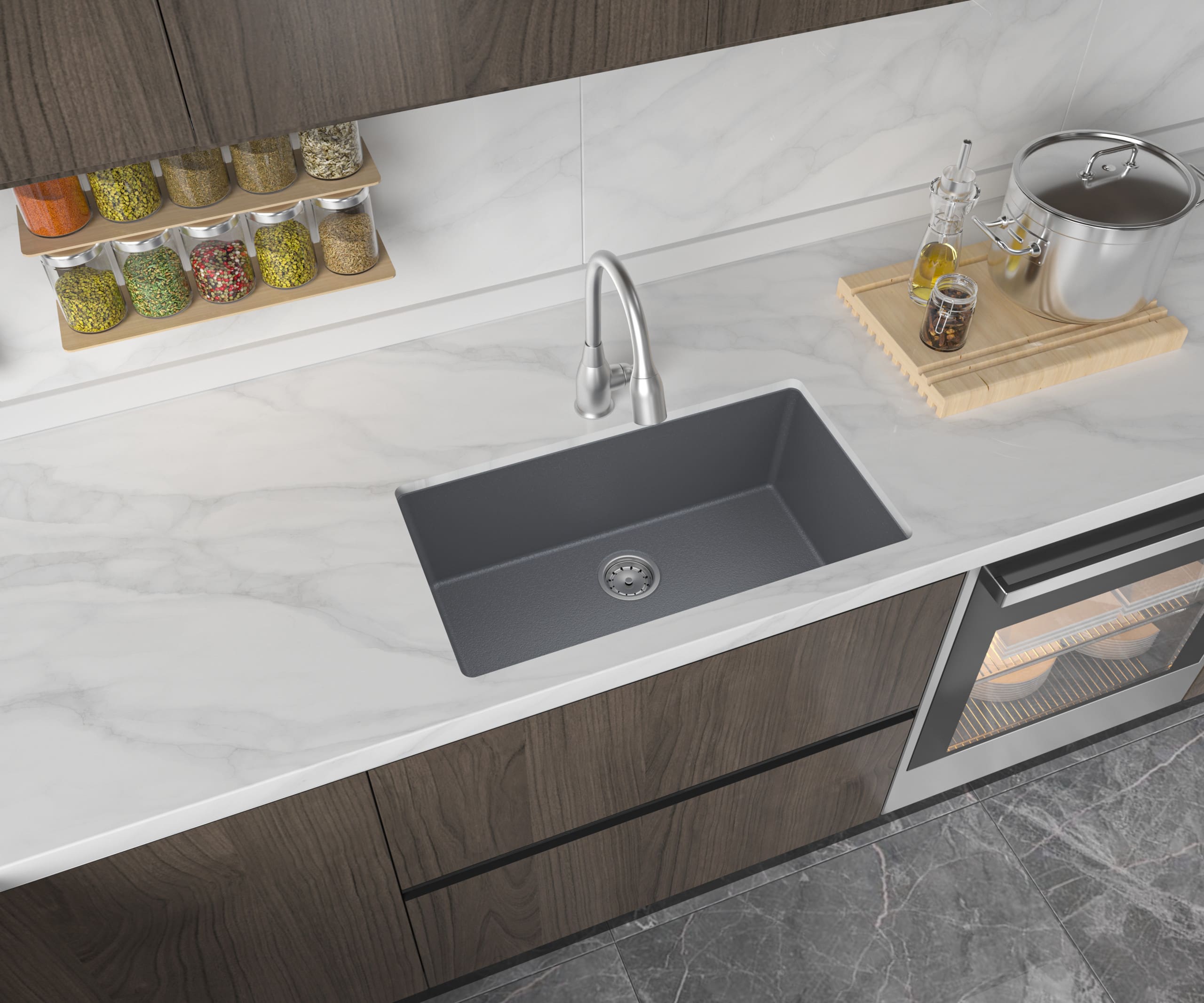 When it comes to choosing a kitchen sink, durability and longevity are two important factors to consider.
Granite composite sinks
are made from a combination of granite stone dust and acrylic resins, making them extremely durable and long-lasting. They are resistant to scratches, stains, and chips, making them perfect for high-traffic kitchens. On the other hand,
stainless steel sinks
may dent, scratch, or stain easily, especially with heavy use. Over time, they may also develop rust or corrosion, reducing their lifespan.
Granite composite sinks
, on the other hand, are known for their strength and durability, making them a more reliable choice for your kitchen.
When it comes to choosing a kitchen sink, durability and longevity are two important factors to consider.
Granite composite sinks
are made from a combination of granite stone dust and acrylic resins, making them extremely durable and long-lasting. They are resistant to scratches, stains, and chips, making them perfect for high-traffic kitchens. On the other hand,
stainless steel sinks
may dent, scratch, or stain easily, especially with heavy use. Over time, they may also develop rust or corrosion, reducing their lifespan.
Granite composite sinks
, on the other hand, are known for their strength and durability, making them a more reliable choice for your kitchen.
Heat and Noise Resistance
 Another advantage of
granite composite sinks
is their resistance to heat and noise. They can withstand high temperatures, making them perfect for handling hot pots and pans without worrying about damaging the sink. Additionally, the composite material helps to absorb noise, making them a quieter option compared to stainless steel sinks. This can be especially beneficial for open-plan kitchen designs where noise can easily travel to other areas of the house.
Another advantage of
granite composite sinks
is their resistance to heat and noise. They can withstand high temperatures, making them perfect for handling hot pots and pans without worrying about damaging the sink. Additionally, the composite material helps to absorb noise, making them a quieter option compared to stainless steel sinks. This can be especially beneficial for open-plan kitchen designs where noise can easily travel to other areas of the house.
Aesthetic Appeal
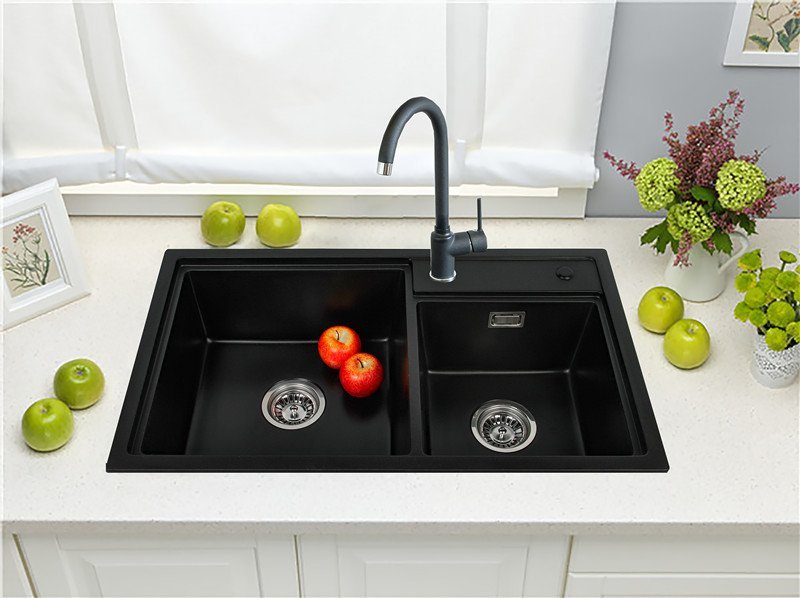 With the rise of modern farmhouse and industrial kitchen designs,
granite composite sinks
have become a popular choice for their sleek and stylish appearance. They are available in a variety of colors and finishes, providing homeowners with more options to match their kitchen's overall aesthetic. On the other hand,
stainless steel sinks
are limited in color options and may not offer the same level of design versatility.
With the rise of modern farmhouse and industrial kitchen designs,
granite composite sinks
have become a popular choice for their sleek and stylish appearance. They are available in a variety of colors and finishes, providing homeowners with more options to match their kitchen's overall aesthetic. On the other hand,
stainless steel sinks
are limited in color options and may not offer the same level of design versatility.
Ease of Maintenance
 Maintaining a clean and hygienic kitchen sink is essential for a healthy home.
Granite composite sinks
are non-porous, meaning they do not absorb liquids, making them resistant to bacteria and mold growth. They are also easy to clean, requiring only a mild soap and water solution. On the other hand,
stainless steel sinks
are prone to water spots, fingerprints, and soap scum buildup, requiring more frequent cleaning and maintenance.
In conclusion, while both granite composite and stainless steel sinks have their own benefits and drawbacks, choosing a
granite composite kitchen sink
offers more advantages in terms of durability, heat and noise resistance, aesthetic appeal, and ease of maintenance. With its combination of strength, style, and functionality, it is a wise choice for any modern kitchen design.
Maintaining a clean and hygienic kitchen sink is essential for a healthy home.
Granite composite sinks
are non-porous, meaning they do not absorb liquids, making them resistant to bacteria and mold growth. They are also easy to clean, requiring only a mild soap and water solution. On the other hand,
stainless steel sinks
are prone to water spots, fingerprints, and soap scum buildup, requiring more frequent cleaning and maintenance.
In conclusion, while both granite composite and stainless steel sinks have their own benefits and drawbacks, choosing a
granite composite kitchen sink
offers more advantages in terms of durability, heat and noise resistance, aesthetic appeal, and ease of maintenance. With its combination of strength, style, and functionality, it is a wise choice for any modern kitchen design.



